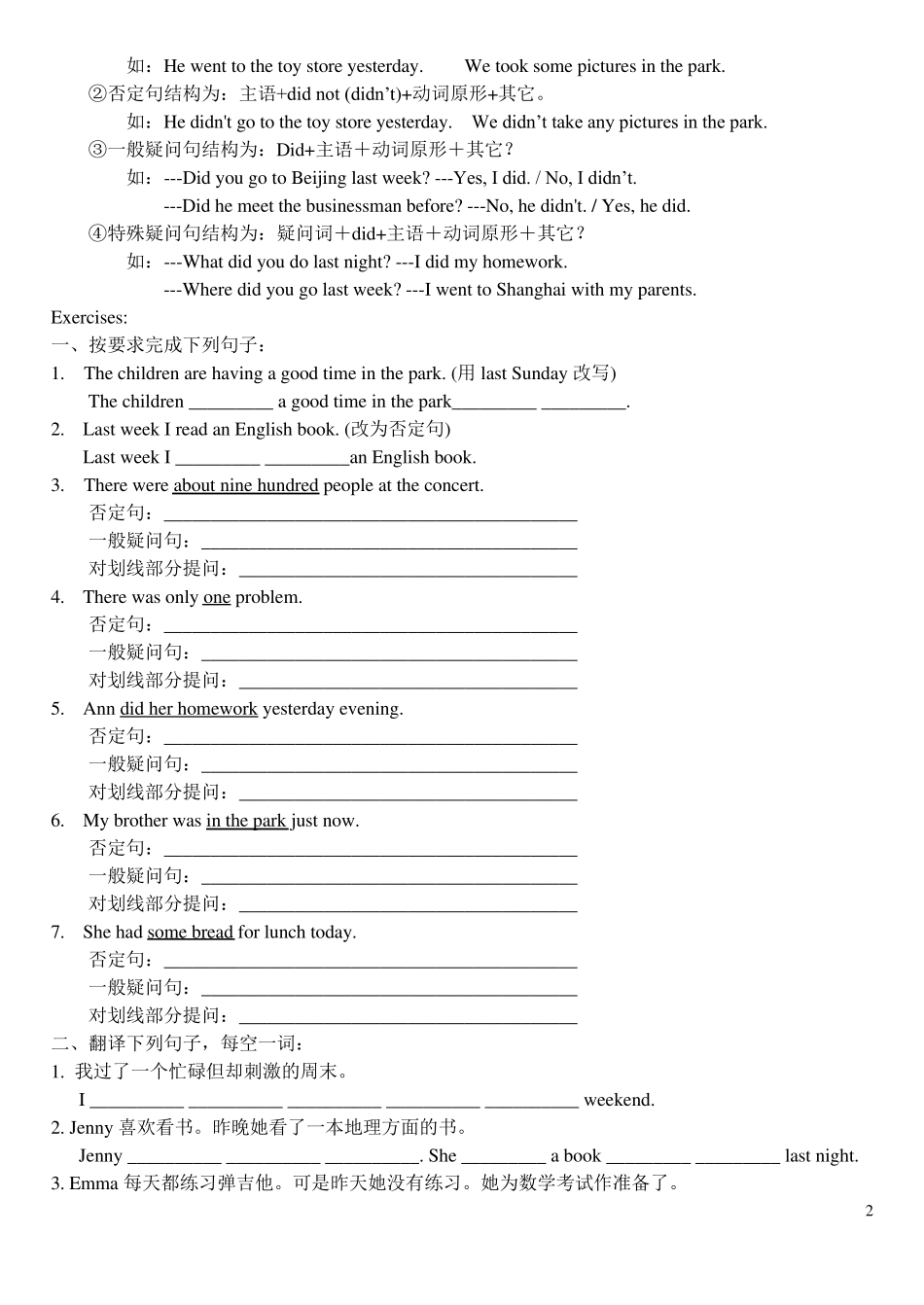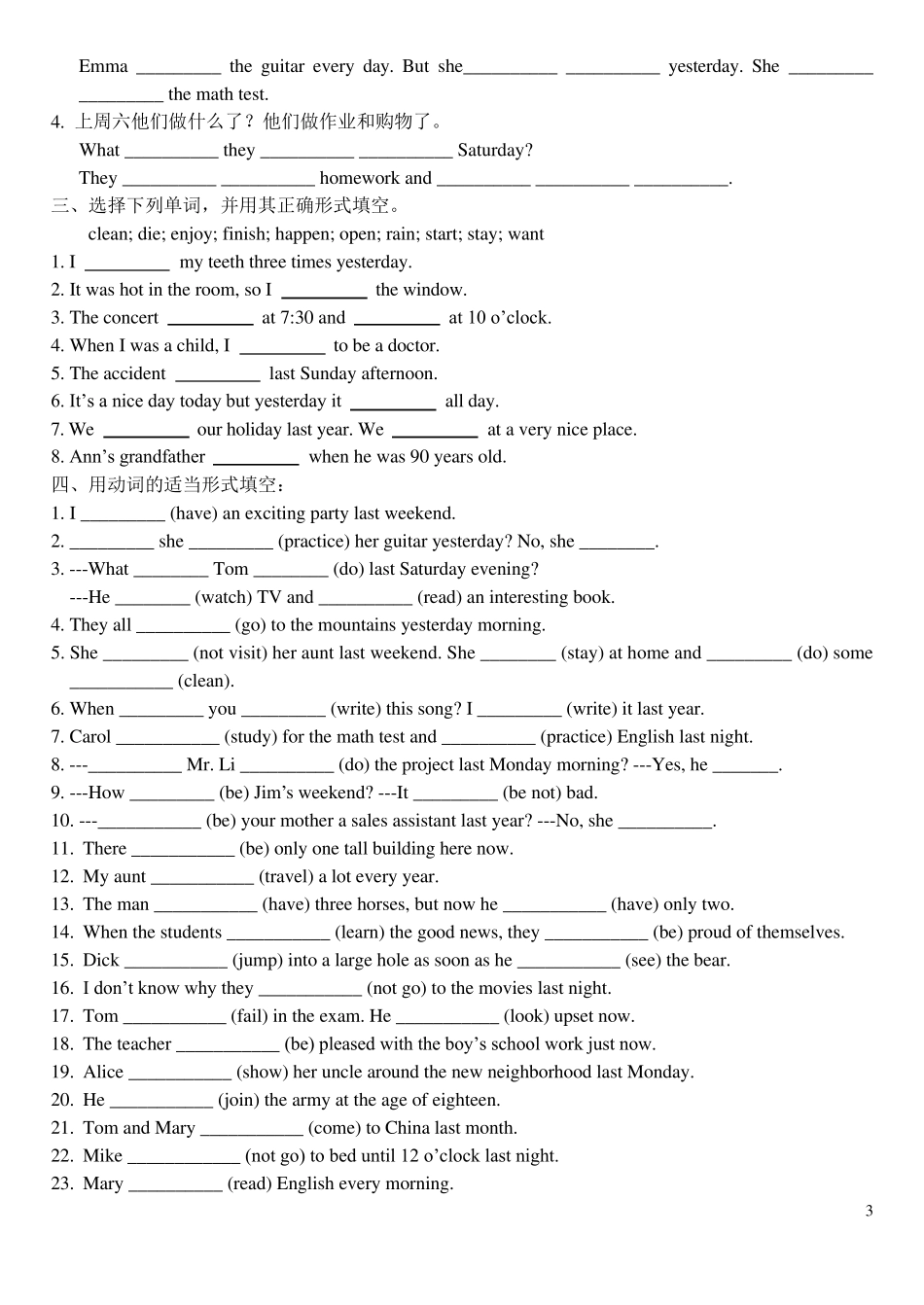1 初一下英语语法专题----一般过去时 一、一般过去时的概念: 一般过去时表示过去某个时间发生的动作或存在的状态,常和表示过去的时间状语连用,如:last year, yesterday, in 1990, two days ago 等;也可表示过去经常反复发生的动作,常和often, always 等频率副词连用。 例如: ①I saw him in the street yesterday. 昨天我在街上看见他了。 ②Li Mei always went to school on foot last year. 去年李梅总是步行上学。 二、一般过去时的构成: 1. be 动词的一般过去时的构成: 第一人称单数和第三人称单数用was, 其余人称用were 例如: ①I was ten years old at that time. ②There were many people standing in front of the door. 2. 实义动词的一般过去时的构成: (1) 规则动词过去式的构成有四条规则: ①一般在动词原形末尾直接加上 ed。 如:look---looked work---worked jump---jumped stay---stayed ②以不发音的字母 e 结尾的动词,直接加 d。 如:live---lived close---closed dance---danced ③末尾只有一个辅音字母的重读闭音节,先双写这个辅音字母,再加 ed。 如:stop---stopped shop---shopped prefer---preferred ④末尾是辅音字母加 y结尾的动词,先变 y为 i,然后再加 ed。 如:study---studied try---tried (2) 不规则动词的过去式需特殊记忆。 如:am(is)---was are---were go---went come---came take---took have(has)---had 三、一般过去时的几种句型: (1) be 动词的一般过去时的句型: ①肯定句结构为:主语+was / were+其它。 如:I was at home yesterday. They were really happy at the party. ②否定句结构为:主语+was not (wasn’t) /were not (weren’t)+其它。 如:I wasn’t at home yesterday. They weren’t happy at the party. ③一般疑问句结构为:Was / Were+主语+其它? 如:---Were you at home yesterday? ---Yes, I was. / No, I wasn’t. ---Were they happy at the party? ---Yes, they were. / No, they weren’t. ④特殊疑问句结构为:疑问词+was / were+主语+其它? 如:---Where were you last night? ---We were at my uncle’s house. ---How was your weekend? ---It was great. (2)...


